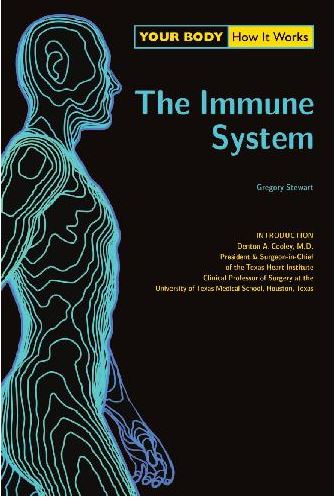Your Body. How It Works. The Immune System PDF Free Download

familiar to you. The skeletal system includes the bones of the body and serves as a support system for the rest of the body systems. The muscular system allows the body to move, and the digestive system allows us to take in food and convert it to forms needed to build and maintain the body. It is relatively easy to understand the functions and the importance of these systems, but what about the immune system? The immune system is extremely important to us. It is the most important system in the body for avoiding and fighting infections. It also prevents the development of certain types of cancer. To help you understand the importance of this system, we will consider two examples of conditions where the immune system does not function properly.When we understand how problems with the immune system result in these conditions, we will have a better appreciation of why an effective immune system is so important to our health and well-being. CONDITION ONE—WHEN THE IMMUNE SYSTEM UNDERFUNCTIONS: ACQUIRED IMMUNE DEFICIENCY SYNDROME (AIDS) Plagues and History? Every historical age of human history seems to be defined by one or more catastrophic diseases. In medieval Europe, “the black plague,” or bubonic plague, was a recurring disease. Outbreaks would occur in villages and cities throughout Europe and in many cases were responsible for the death of up to 25% of the total population.
